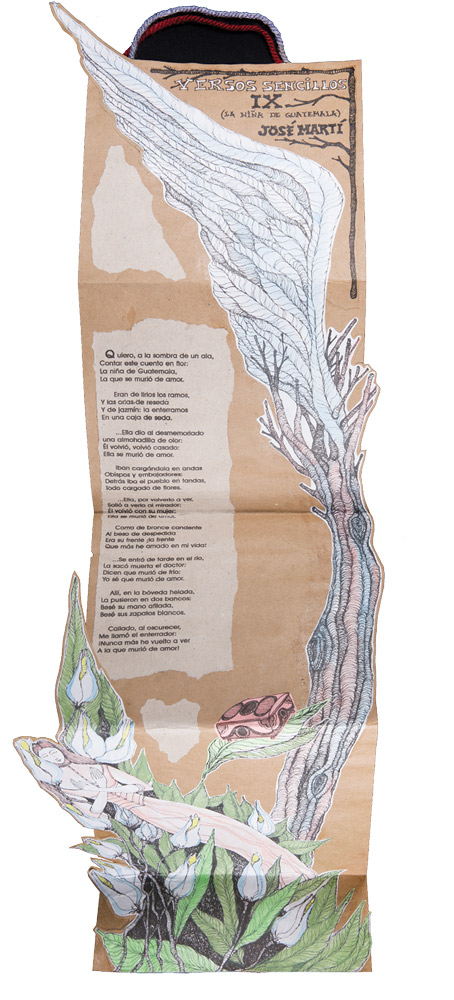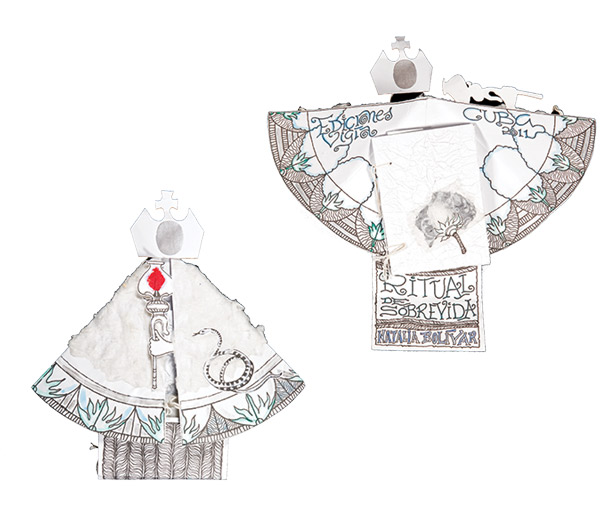
The lyrics of Simple Verses by Martí were adapted to the song “Guantanamera” (1929). Martí died fighting in the war for independence against Spain in 1895. The lyrics of his verse about a sincere man from where the palm trees grow came to represent Martí, his fight for Cuban liberty, and the ongoing struggle for Cuba.
Ediciones Vigía, a publishing house in the town of Matanzas, Cuba, began to create handbills and invitations in 1985 for local cultural events. Now a collective of artists and editors who produce books by hand, they thrive today in the same house on the Plaza Vigía, or Watchtower Square. The Special Collections Gallery at the Jean and Alexander Heard Libraries displayed a selection of these handmade books through March of this year. These works now can be enjoyed again in the online exhibit Found in Cuba: The Ingenuity and Creativity of Ediciones Vigía.
Collected by Paula Covington, MLS’71, MA’94, Latin American and Iberian bibliographer and senior lecturer in Latin American studies, they are constructed from repurposed materials: yarn, dried leaves, donated fabrics, local butcher paper. Artists photocopy, mimeograph or hand-letter the text rather than print on a press. The use of everyday scraps reflects the economic hardships of those who make these books.
“From the very first visit,” says Covington, “I was struck by three things: their energy, their ingenuity in making so much with so little, and their intense devotion to making their country’s literature available.”
See the exhibit at vu.edu/ediciones-vigia.

In Cuba, the Virgin of Charity or Virgen de la Caridad del Cobre is venerated as their nation’s patroness and holds the additional title of “Virgin for Cuban Independence.” For Afro-Cubans who practice Santeria she is syncretized with the orisha Ochún.